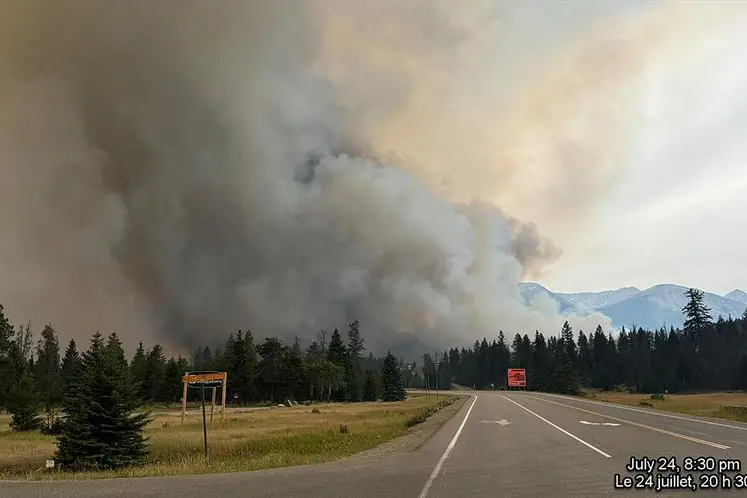PHOTO
Record wildfires in 2023 bumped Canada into the top four greenhouse gas-emitting countries in the world that year, according to a study Wednesday that also cast doubt on its forests' future ability to capture and store significant amounts of CO2.
Last year saw a catastrophic number of wildfires across the country, with 15 million hectares -- some 58,000 square miles, or about four percent of Canada's total forest area -- burned and more than 200,000 people displaced.
Looking at satellite data of smoke plumes from fires that burned from May to September of last year, researchers determined that 2,371 megatonnes of carbon dioxide and monoxide were released, pushing Canada's ranking up from eleventh to fourth among the world's top carbon emitters.
It put the country behind only China, the United States and India for 2023.
The research was published in the journal Nature.
The researchers warn that the hot, dry weather responsible for those blazes is forecast to become the norm by the 2050s, and is "likely to drive an increase in fire activity."
"This raises concerns about whether potentially more frequent and intense fires in the coming decades will suppress the ability of Canadian forests to continue serving as carbon sinks," Brendan Byrne, lead author of the study, told AFP.
Canada's boreal forest, a vast swath stretching from the Pacific to the Atlantic oceans, holds significant amounts of what is known as "sequestered" CO2.
As scorched forests regrow over decades, the CO2 released by wildfires is usually reabsorbed.
But a jump in the size and number of annual fires, coupled with droughts in some regions, could mean forests take longer to grow back.
That in turn "could suppress carbon uptake by the forests," said the study.
Canada would have to adjust downward its level of allowable fossil fuel emissions in order "to compensate for reduced carbon uptake by forests," it concluded.
Ottawa has agreed under the Paris agreement to reduce carbon emissions by 40 to 45 percent from 2005 levels by 2030.
Canada's total CO2-equivalent emissions from burning fossil fuels in 2022 were 708 megatonnes, according to government data.
As human activity has warmed the planet over the past two decades, the frequency and intensity of extreme wildfires have more than doubled worldwide, according to another study published in June in the journal Nature Ecology & Evolution.
The wildfire situation in Canada this year has been more subdued but still calamitous in some parts, with the beloved tourist town of Jasper in the western part of the country partially destroyed in July.
As of Wednesday, there were 732 fires burning -- 136 out of control.





















